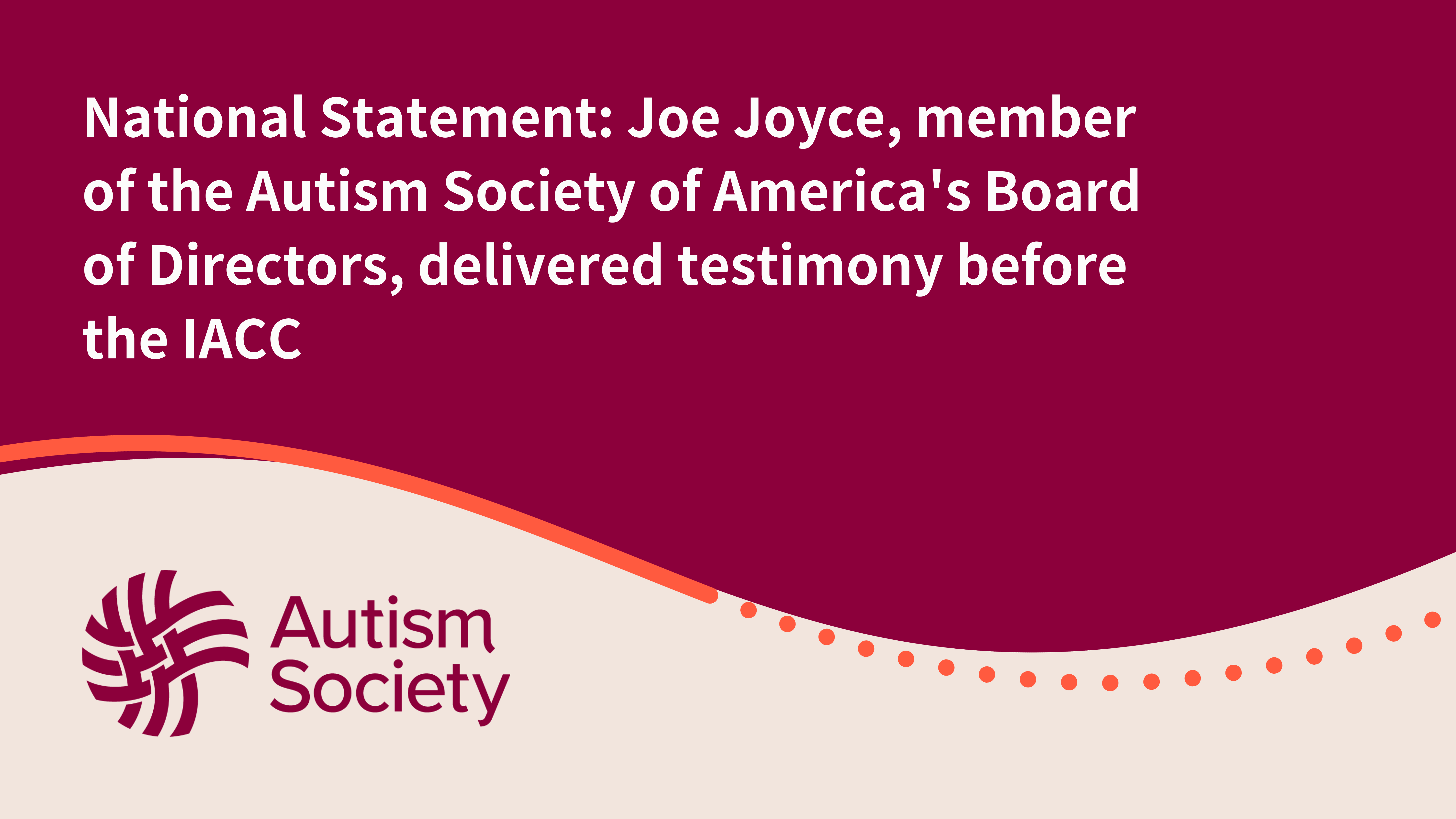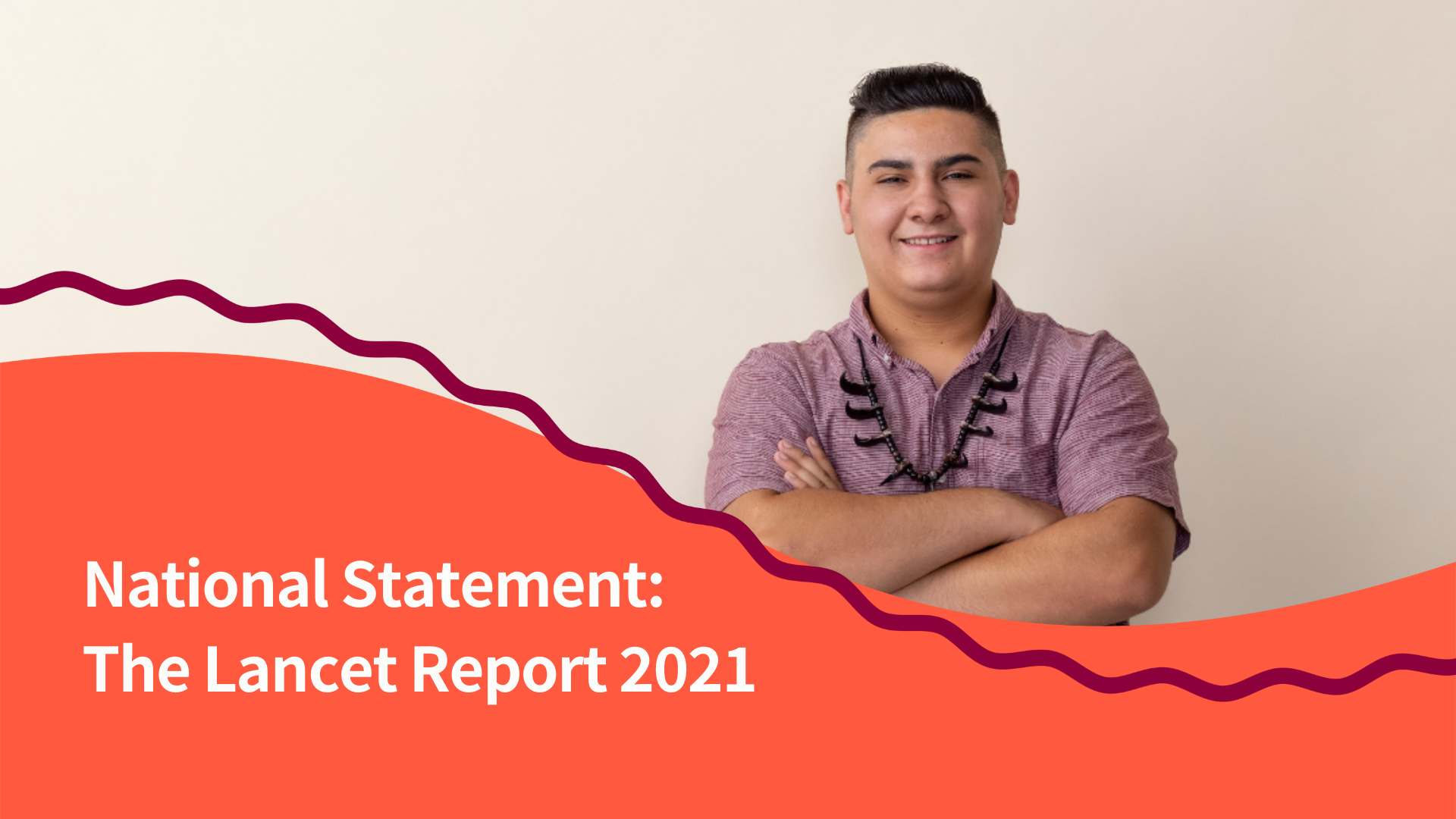
January 19, 2023, Rockville, MD — Yesterday, Joe Joyce, a member of the Autism Society of America’s Board of Directors, delivered an oral testimony before the Interagency Autism Coordinating Committee (IACC). In his remarks, using his own personal experience as a father, he focused on the crisis in the services system for those with Autism, especially for those with significant functional limitations. His written testimony contains additional resources and recommendations for Congress and the Administration.
Read Joe Joyce’s full testimony below:
Thank you, Dr. Gordon and the rest of the Committee for allowing me to provide brief comments. I am providing this testimony on behalf of the Autism Society of America; and as a father of two adult sons with developmental disabilities.
My wife Elise and I are parents of two individuals with significant functional limitations: David, age 24, has Autism, and Matt, 26, has Down Syndrome; both have intellectual and developmental disabilities. Developmental disabilities are defined in law as physical or mental impairments that begin before age 22, are likely to continue indefinitely, and result in substantial functional limitations in at least three major areas of self-care.In spite of these limitations, both of our young men are loved and valued members of our family and community.
Elise and I were finally able to transition David to a home that we bought for him. However, it was a massive struggle to find direct support professionals and a licensed agency to operate the home. Many agencies declined due to inadequate provider rates to serve high-risk residents. We are fortunate to have some resources for this planning but millions of families do not. Matt continues to live with us as we plan his transition. We know that David and Matt will not be able to care for themselves without significant support. We worry about what will happen to them when we are no longer here to take care of them and coordinate and oversee their services.
The Home and Community-based Medicaid waiver is the program that most individuals and families depend on to get the services they need to keep family members at home, get habilitation, behavioral health, and supported employment. However, the only service that states are required to cover is home health. Most other services are optional. States are also permitted to limit the number of people eligible for waivers resulting in waiting lists, that in some states are many years long. In addition, states vary in the way they screen and collect data on waiting lists and they vary in the pay rates for direct support professionals.
Waiting list totals across all disabilities for states are estimated to be over 800,000. Even more troubling, individuals wait on average 39 months to secure services, with reports of some waiting 15 years. There is an urgent need to remedy this crisis as the prevalence of Autism is expected to increase by 15 percent over the next ten years.
New data from ANCOR finds that a significant shortage of direct support professionals has reached catastrophic levels. The longstanding workforce crisis, exacerbated by the pandemic, has led to closures of critically needed services and a denial of access to community-based support. Vacancy rates for full-time direct support positions experienced a 45% increase.
My family experienced this shortage first-hand. During the height of the pandemic, David’s day habilitation services (Hope Springs) were completely closed for 12 months, putting significant strain on working parents. Many of the direct service providers sought employment elsewhere, resulting in a significant shortage of staff. We are so fortunate that Hope Springs Farm survived the crisis, thanks, in part to federal government funding packages. However, due to the staff credentials required for high-risk behaviors, David has not yet been able to return to the day program at pre-pandemic levels.
In all the years I have been involved in the Autism Society, I have never been more worried about the state of our nation’s service system for people with Autism and other developmental disabilities. We receive way too many calls to our hotline related to individuals and families suffering without services. The Administration and Congress must find the political will to help states provide these services.
We have provided recommendations in our written testimony for your consideration. We hope that you will use the influence of this body to do what you can within the agencies around this table to make an impact and to make recommendations to Congress to improve services for those with Autism.
Thank you for your attention to this important issue.
Read the full written testimony here.
Share:




